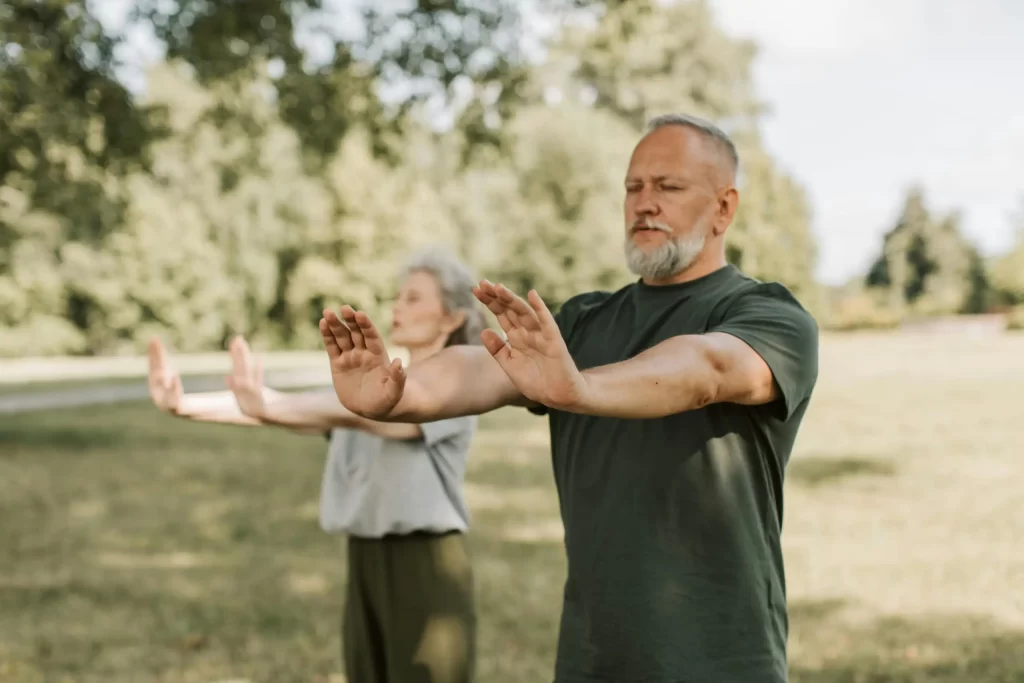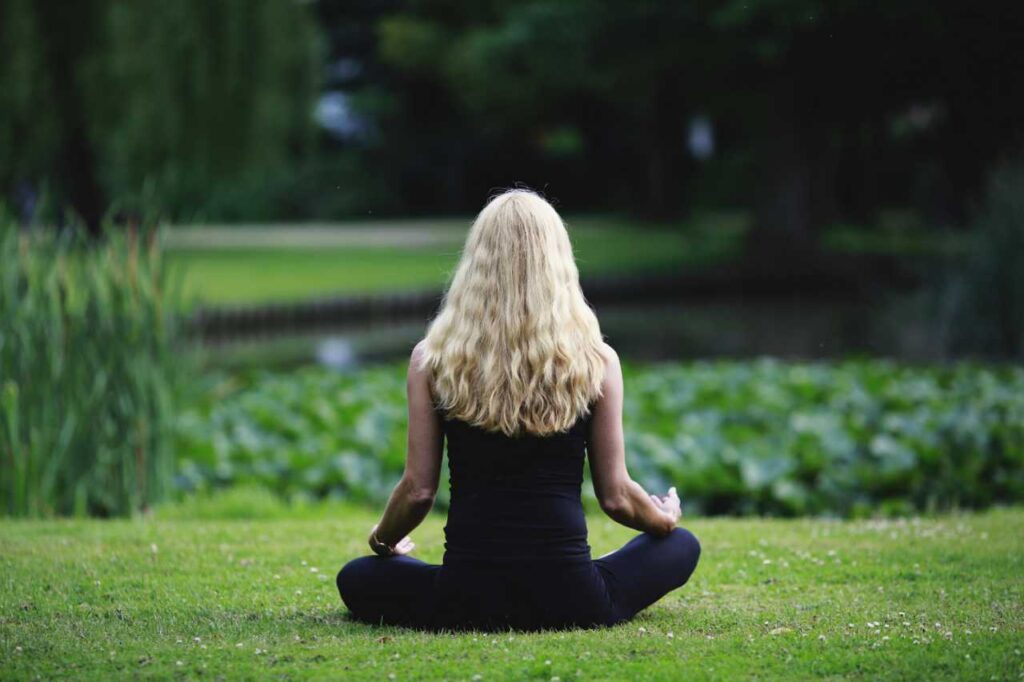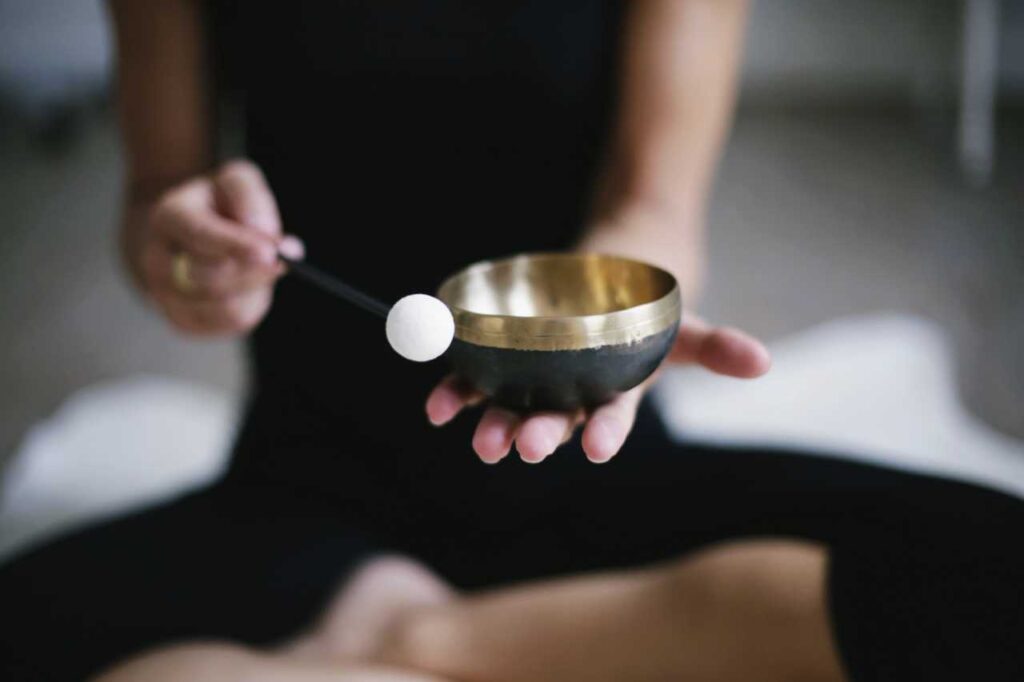MedicalAlertBuyersGuide.org is an independent review site. We may earn compensation from the providers below. Learn More
Mindfulness Helps Seniors Sharpen Their Minds

Mindfulness can be as simple as taking time out of the day to enjoy the peace and quiet, and in today’s busy and stressful world, this is something we can all overlook. For seniors, with usually a busy life slowing down and often with too little to do, it’s important to use the “empty” time in a fulfilling way, and focusing on mindfulness can be this way.
What is Mindfulness?

Mindfulness in our culture is often associated with formal meditation or yoga. However, those are just two ways that you can practice this. The definition of ‘mindfulness’ is intentionally focusing your attention on something that’s happening right now while letting go of your judgments and impatience. It’s being here and now with whatever is happening – and if nothing is happening, that’s where we need to be.
What Good is Mindfulness?
Focusing on just one thing may seem deceptively simple, but it’s not necessarily easy. However, this simple practice offers a host of benefits for everyone from children to seniors. Alongside well known benefits such as lower blood pressure and a stronger immune system, mindfulness can help with mental health. Studies have found that mindfulness:
- Reduces anxiety and depression.
- Helps overcome insomnia.
- Lowers stress levels.
- Reduces feelings of loneliness.
- Improves memory and ability to concentrate.
- Can slow the progression of Alzheimer’s disease and dementia and increase quality of life.
So What is Mindfulness again?

Think about mindfulness as mental exercise. Just as working out physically makes your muscles stronger, working your attention makes your mental faculties – particularly the ability to focus – stronger over time.
Mindfulness also creates a peaceful place where you can escape stress, and recharge. All too often, our days can feel like one crisis after another. That’s true of people of any age. Carving out a little peace and quiet can help you bring down your heart rate and your cortisol levels. Your body will stop sending you multiple signals that you’re in crisis. You’ll be able to navigate your day with a clearer head.
This peaceful place is also a safe zone for you to live with difficult emotions, whether they’re from the state of the world, personal illness, or perhaps the loss of a loved one. Mindfulness helps you acknowledge what you feel and let the emotions be without growing obsessive. This sets you free to feel more positive things as well.
How Do You Practice Mindfulness?
It’s as easy, and as challenging, as one, two, three.
- Get into a comfortable place with few distractions.
- Pick something to focus your attention on.
- When your mind wanders (and everyone’s mind does), just bring your attention back on task.
How do you put this into practice? One option is to hop onto YouTube or try a guided mindfulness meditation app. These usually have gentle music or a background of nature sounds. The speaker guides you into relaxing, focusing on something like your breathing, refocusing, and finally tells you when the session’s over.
There are thousands of guided mindfulness tracks out there, and they take out the guesswork. Just follow the directions and you’ll be done before you know it. However, all these options can be overwhelming. It may be tricky to find the right kind of meditation or the right speaker. Also, many of these have a spiritual angle that’s not to everyone’s taste.

The good news is that you can create your own customized mindfulness practice, right now. Start by asking yourself: What do you like to do? What activity makes you feel relaxed yet focused? Where do you tune out distractions and really open up to what’s happening in the present moment? A few ideas include:
- Curled up on the couch petting your cat or dog.
- A leisurely walk through the garden.
- Watching birds at the feeder outside your window.
- Your morning stretching session.
- Soaking in a hot bath, enjoying the warmth on your skin.
- Repeating a chant or prayer or humming your favorite song.
- Hands-on crafts like knitting or woodworking.
You can set a timer on your phone or pick an activity that naturally has a time limit, like walking a loop around the park. How long should that time limit be? Some people suggest that you get the most benefits from 10-20 minutes of mindfulness practice a day (feel free to go longer).
If this sounds like a lot, start small. You’ll get a taste of brain-sharpening benefits from just five to ten minutes a day, and you can build up your attention endurance a minute at a time. It’s also better to do a small session every day rather than a marathon session sporadically every couple of weeks.
Make It a Habit
You may have the best luck sticking with practice it if you tie mindfulness to part of your daily schedule. For instance, you could spend five minutes every morning really savoring your first cup of coffee, no phones or distractions allowed. If you live with relatives or a caregiver, talk to them about what you’re trying to do. That way they’ll know not to interrupt you during this daily you-time.
Reconnect With Your Life
Seniors have to grapple with age-related physical and mental health challenges, on top of the same stress and uncertainty that everyone else has in these difficult times. Mindfulness isn’t a magic fix. However, the simple act of focusing your attention can sharpen the mind, brighten the mood, and it may even stave off dementia for the older generation.

